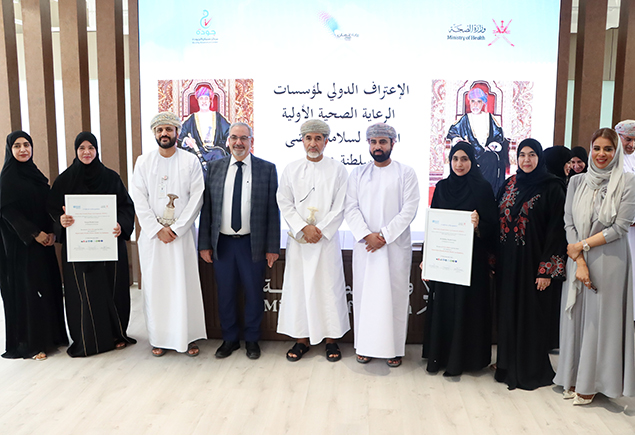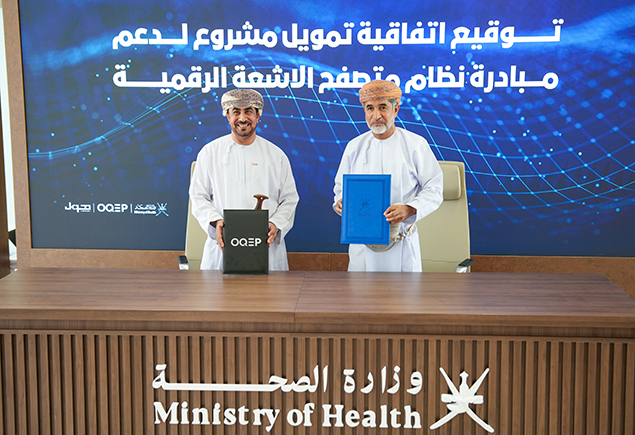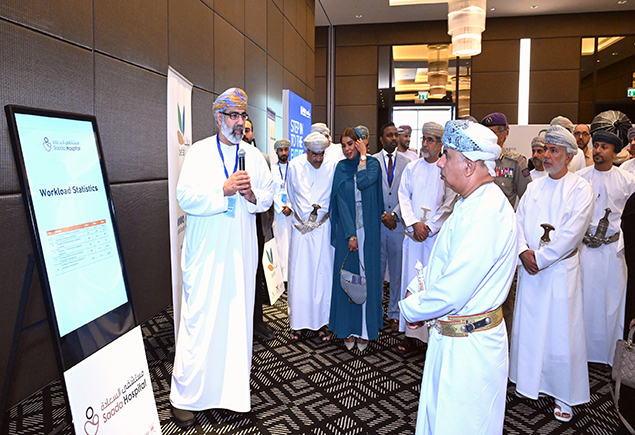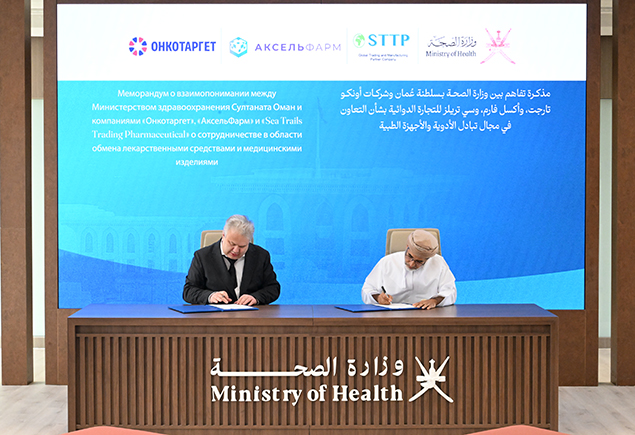Health Marks World AIDS Day

Under the theme “global solidarity, resilient HIV services”, the Sultanate, joined today (Tuesday) the world celebration of World AIDS Day, which is observed on December 1.
Meanwhile, the Directorate General for Disease Surveillance and Control at Ministry of Health held an event to mark the Day under the auspices of H.E. Dr. Ahmed Mohammed Al Saidi, Minister of Health, with the presence of H.E. Dr. Mohammed Saif Al Abri, MOH’s Undersecretary for Health Affairs as well representative of the World Health Organization (WHO) in the Sultanate H.E. Dr. John Jabbour, and number of Ministry’s senior officials.
His Excellency affirmed that combating the acquired immune deficiency syndrome (HIV/AIDS) is everyone’s responsibility. The cooperation of the family and community institutions in instilling praiseworthy values in young people, combating wrong behaviors and phenomena, and spreading a healthy environment in beliefs and practices would help in raising a healthy generation.
The webinar covered spectrum of topics where Dr. Zayana Al Habsi, Head of HIV, STIs & Hepatitis reviewed the achievements and challenges regarding AIDs and sexually transmitted infections (STIs) in the Sultanate. Moreover, Dr. Seif Al Abri, Director General of Disease Surveillance and Control highlighted success story on the elimination of mother to child transmission of HIV and Syphilis in Oman.
AIDS has become a chronic disease like other chronic diseases such as pressure and diabetes, and it requires commitment to take treatment periodically for an indefinite period. Hence, the Ministry of Health attaches great importance to following up patients from the beginning of diagnosis, treatment and periodic follow-up with examinations to ensure that the right results are reached. It also gives an emphasis to following up people living with HIV and encouraging them to join the community like other individuals.
Symptoms of HIV infection vary according to the stage of infection. Although the infected people who live with the virus most likely have contracted the infection during the past few months, many of them do not know that they are infected until at a later stage.
Those infected may not experience any symptoms during the few weeks following their infection, as the symptoms are limited to an influenza-like illness, and include fever, headache, and the appearance of a rash or a sore throat. When the disease advances, other signs appear such as enlarged lymph nodes, weight loss, fever, diarrhea, and coughing. Without proper treatment, patients develop severe diseases such as tuberculosis and meningitis, and cancers, such as lymphomas and Kaposi's sarcoma, and others.







